TAVI – Is Lifetime Patient Management the Alpha to Omega of Contemporary Practice?
Published: 20 March 2024
-
Views:
 2688
2688
-
Likes:
 7
7
-
Views:
 2688
2688
-
Likes:
 7
7
-
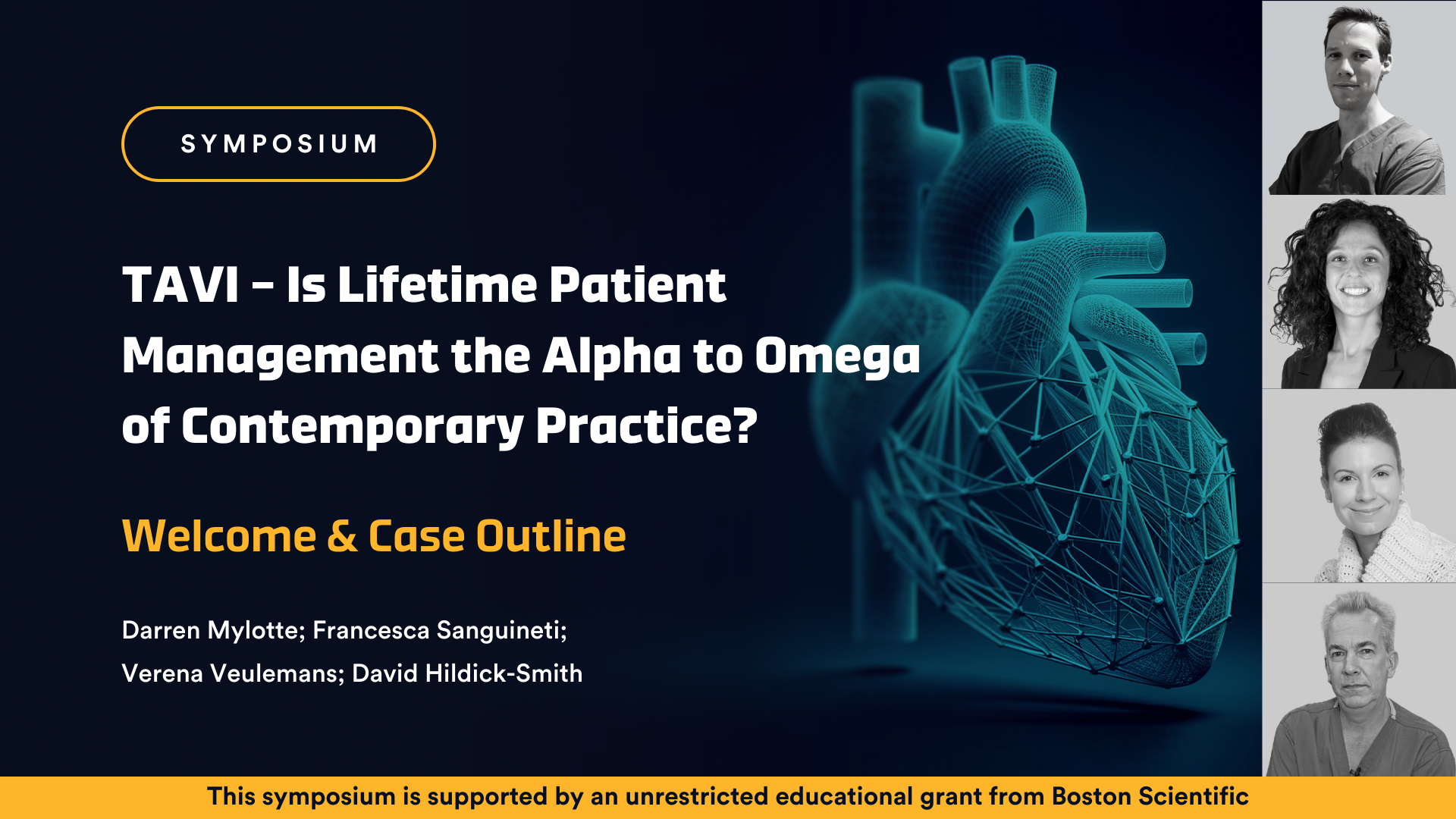 7m 43sPart 1 Welcome & Case Outline – Darren Mylotte Darren Mylotte, Francesca Sanguineti, Verena Veulemans, David Hildick-Smith
7m 43sPart 1 Welcome & Case Outline – Darren Mylotte Darren Mylotte, Francesca Sanguineti, Verena Veulemans, David Hildick-Smith
-
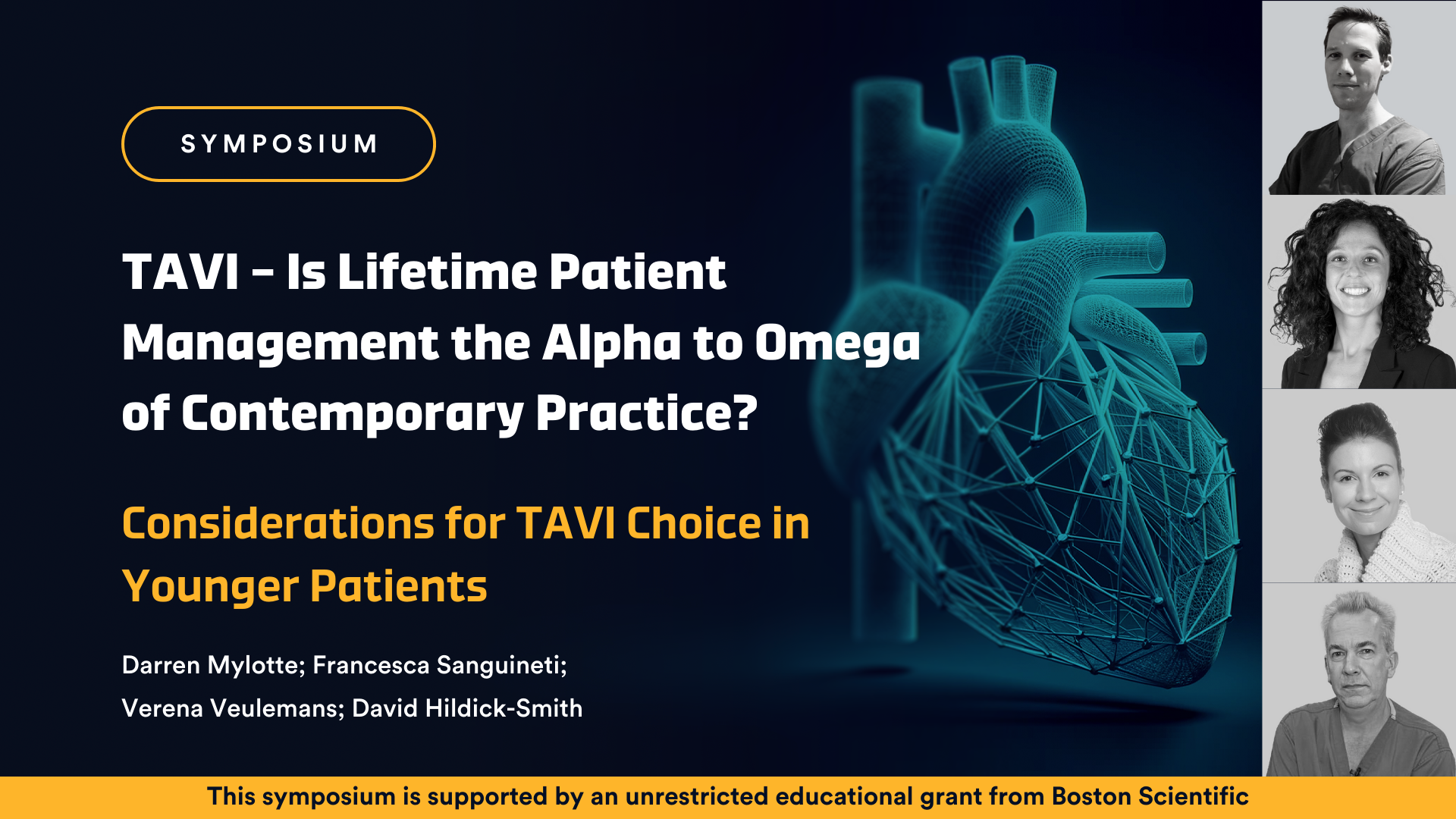 10m 35sPart 2 Considerations for TAVI Choice in Younger Patients – Francesca Sanguineti Darren Mylotte, Francesca Sanguineti, Verena Veulemans, David Hildick-Smith
10m 35sPart 2 Considerations for TAVI Choice in Younger Patients – Francesca Sanguineti Darren Mylotte, Francesca Sanguineti, Verena Veulemans, David Hildick-Smith
-
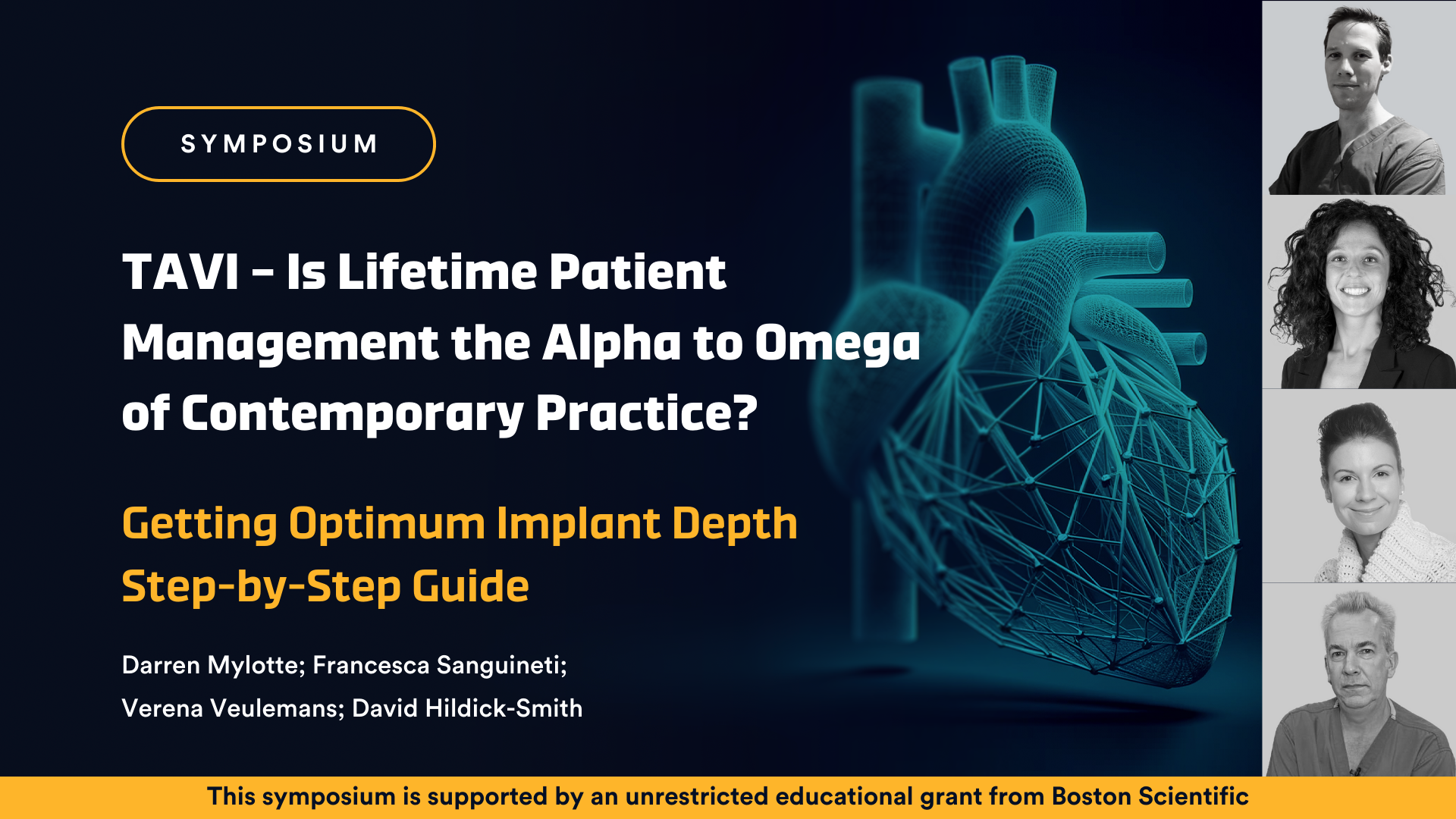 10m 35sPart 3 Getting Optimum Implant Depth – Step-by-Step Guide – Verena Veulemans Verena Veulemans
10m 35sPart 3 Getting Optimum Implant Depth – Step-by-Step Guide – Verena Veulemans Verena Veulemans
Overview
This symposium hosted at Transcatheter Interventions Online 2024 explored cutting-edge advancements in coronary access and valve design within TAVI. The faculty analysed factors affecting coronary access across diverse valve designs and strategies to enhance access. This session provides step-by-step techniques for achieving optimal implant depth and implements guidelines for procedural confirmation in TAVI.
Learning objectives
- Evaluate the factors influencing coronary access in different valve designs
- Formulate strategies to optimise coronary access based on valve characteristics
- Evaluate the role of valve design in reducing pacemaker implantation rates and enhancing future coronary access
- Learn the step-by-step process for achieving optimum implant depth during TAVI
- Apply guidelines and best practices for achieving and confirming optimum implant depth in TAVI procedures
Target Audience
- Interventional Cardiologists
- Surgeons with an interest in transcatheter treatment strategies for coronary and structural heart disease
- Interventional Cardiology Nurses
More from this programme
Part 1
Welcome & Case Outline
Part 2
Considerations for TAVI Choice in Younger Patients
Part 3
Getting Optimum Implant Depth – Step-by-Step Guide
Part 4
Live Case and Panel Discussion
Faculty Biographies

David Hildick-Smith
Prof David Hildick-Smith is Professor of Interventional Cardiology and Consultant Cardiologist at the Sussex Cardiac Centre - the Regional Specialist Unit. He is Director of the Cardiac Research, ex-Treasurer of the British Cardiovascular Interventions Society, and, with more than 20 years experience of Interventional Cardiology, is considered one of the country's leading experts in management of Cardiovascular complaints.
A pioneer of Interventional Cardiology, David is recognised internationally as a leader in cardiovascular diagnosis and treatment.

Darren Mylotte
Consultant Cardiologist
Dr Darren Mylotte graduated from RCSI Medical School in 2001, obtained membership of the Royal College of Physicians in Ireland in 2004, and completed the Irish Cardiology Specialist Training Scheme. He and was conferred with a Doctor of Medicine (MD) thesis in 2010 by the Royal College of Surgeons in Ireland and has also undertaken a PhD thesis. N the subject of Transcatheter Aortic Valve Implantation (TAVI) at the world renowned ThoraxCentre in Rotterdam, The Netherlands.
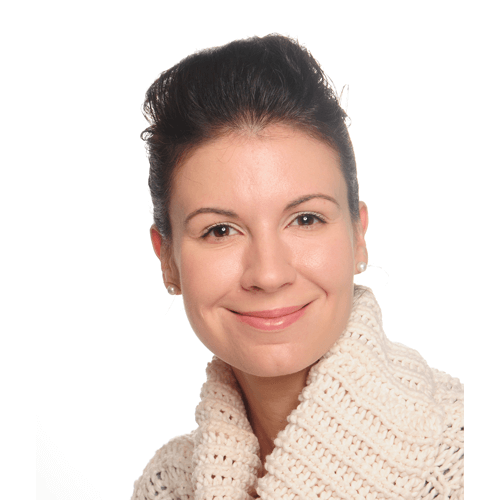
Verena Veulemans
Interventional cardiologist
Verena Veulemans is an interventional cardiologist at University Hospital Düsseldorf, Germany. She joined the TAVR team in 2012 and has been a senior consultant since 2017. Dr Veulemans has led the interventional and transcatheter valve implantation/aortic disease research programme since 2018. She participates in many multicentre, international registries, and studies on TAVR and structural heart disease.
Dr Veulemans is an editorial board member of Interventional Cardiology: Reviews, Research, Resources (ICR3) since March 2021.
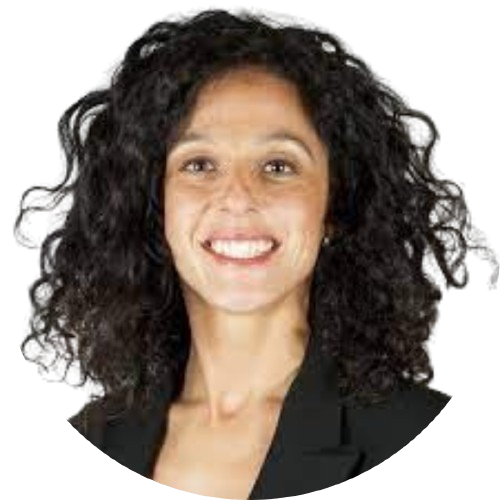
Francesca Sanguineti
Dr Francesca Sanguineti is an Interventional Cardiologist at the Institut Cardiovasculaire Paris Sud, Paris, FR. Born in Italy, she completed her medical studies at the University of Genoa, where she was captivated by cardiology and the swift and life-saving interventions. Under the guidance of mentors during her fellowship at the Institut Cardiovasculaire Paris Sud, she committed herself to advancing cardiovascular care through minimally invasive techniques. Beyond clinical practice, Dr Sanguineti finds fulfillment in research and education. Actively participating in clinical research enables her to contribute to scientific advancements, while sharing knowledge through training programs empowers the next generation of cardiologists.






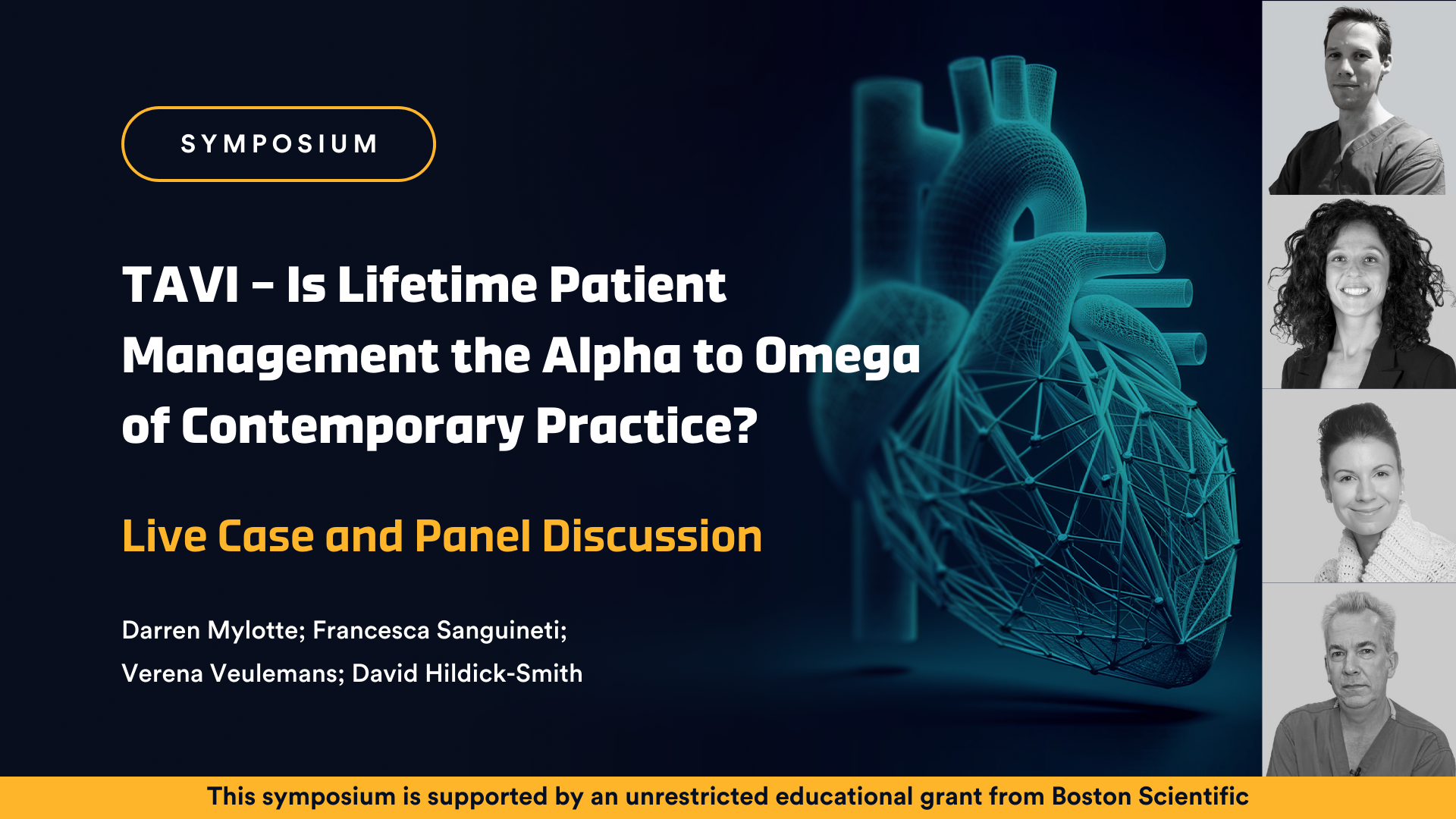
Comments